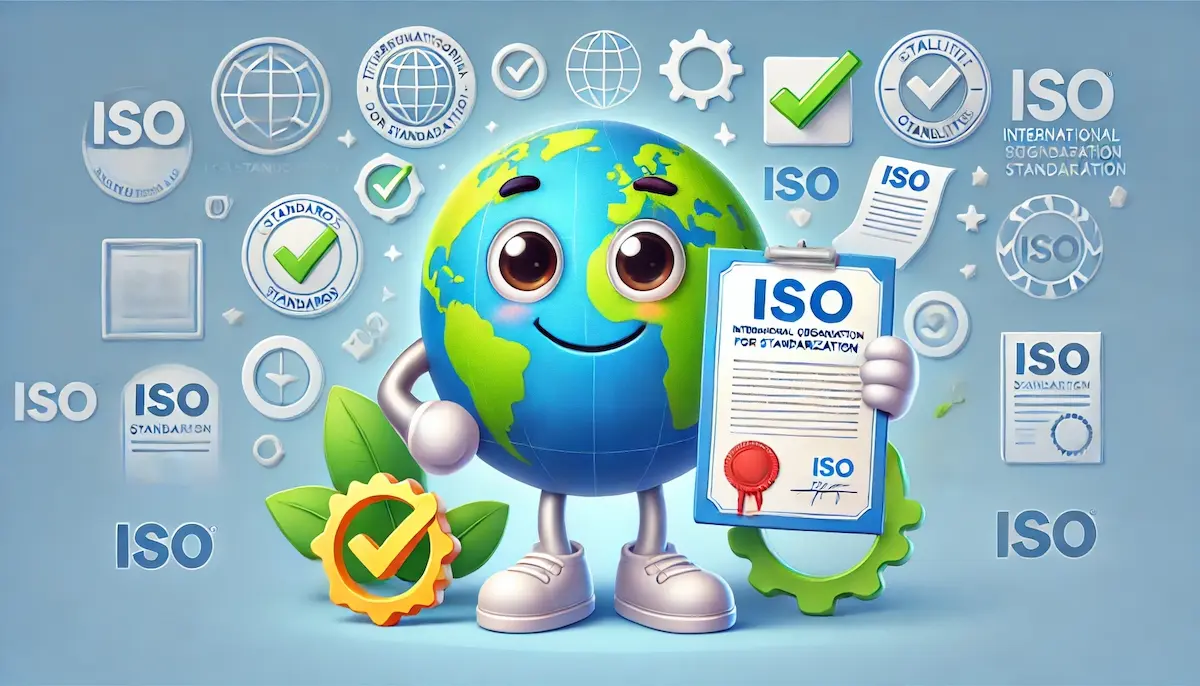The International Organization for Standardization (ISO) is an independent, non-governmental international organization that develops and publishes a wide range of proprietary, industrial, and commercial standards. Founded in 1947 and headquartered in Geneva, Switzerland, ISO aims to promote worldwide proprietary, industrial, and commercial standards to ensure quality, safety, efficiency, and interoperability across various industries and sectors.
Key Functions of ISO
Development of Standards
ISO develops standards through a consensus-based process involving experts from various industries, governments, and other stakeholders. These standards cover a broad range of topics, including technology, safety, quality, environmental management, and more. ISO standards are designed to be universally applicable and are regularly reviewed and updated to keep pace with technological advancements and industry needs.
Certification
While ISO itself does not provide certification, it develops standards that organizations can use to seek certification from accredited third-party bodies. ISO certification demonstrates that an organization adheres to the established standards, ensuring consistency, quality, and reliability in its products or services. Commonly sought certifications include ISO 9001 for quality management and ISO 14001 for environmental management.
Facilitating International Trade
ISO standards play a crucial role in facilitating international trade by ensuring compatibility and interoperability between products and services from different countries. This reduces barriers to trade, enhances market access, and promotes global business opportunities.
Enhancing Safety and Quality
ISO standards help improve the safety, quality, and reliability of products and services. By adhering to these standards, organizations can minimize risks, enhance customer satisfaction, and ensure compliance with regulatory requirements.
Supporting Innovation and Sustainability
ISO standards promote innovation and sustainability by providing guidelines for best practices, environmental management, and energy efficiency. These standards encourage organizations to adopt sustainable practices, reduce environmental impact, and contribute to global sustainability goals.
Notable ISO Standards
ISO 9001: Quality Management Systems
ISO 9001 sets the criteria for a quality management system (QMS) and is one of the most widely recognized ISO standards. It helps organizations ensure they consistently provide products and services that meet customer and regulatory requirements and enhance customer satisfaction through continuous improvement processes.
ISO 14001: Environmental Management Systems
ISO 14001 provides a framework for organizations to develop an effective environmental management system (EMS). It helps organizations improve their environmental performance by reducing waste, conserving resources, and minimizing environmental impact.
ISO 27001: Information Security Management Systems
ISO 27001 specifies the requirements for establishing, implementing, maintaining, and continually improving an information security management system (ISMS). It helps organizations protect their information assets, manage risks, and ensure data security and privacy.
ISO 45001: Occupational Health and Safety Management Systems
ISO 45001 provides a framework for managing occupational health and safety (OH&S) risks and opportunities. It helps organizations create a safe and healthy workplace, reduce work-related injuries and illnesses, and improve overall OH&S performance.
ISO 22000: Food Safety Management Systems
ISO 22000 sets the requirements for a food safety management system (FSMS). It helps organizations in the food chain ensure food safety, manage risks, and improve overall food safety performance.
ISO 50001: Energy Management Systems
ISO 50001 provides a framework for establishing, implementing, maintaining, and improving an energy management system (EnMS). It helps organizations improve energy efficiency, reduce energy consumption, and lower greenhouse gas emissions.
Benefits of ISO Standards
Consistency and Quality
ISO standards help organizations ensure consistency and quality in their products and services. By following established guidelines, organizations can deliver reliable and high-quality outcomes that meet customer expectations.
Competitive Advantage
ISO certification can provide a competitive advantage by demonstrating a commitment to quality, safety, and sustainability. This can enhance an organization’s reputation, build customer trust, and open up new business opportunities.
Risk Management
ISO standards provide a systematic approach to identifying, assessing, and managing risks. This helps organizations minimize potential disruptions, ensure business continuity, and protect their assets.
Compliance and Regulatory Requirements
Adhering to ISO standards helps organizations comply with regulatory requirements and industry best practices. This can reduce the risk of legal issues, penalties, and reputational damage.
Global Recognition
ISO standards are internationally recognized, facilitating global trade and market access. Organizations that achieve ISO certification can compete more effectively in the global marketplace and expand their business reach.
Continuous Improvement
ISO standards promote a culture of continuous improvement by encouraging organizations to regularly review and enhance their processes. This leads to ongoing innovation, efficiency, and performance improvements.
Challenges of ISO Standards
Implementation Costs
Implementing ISO standards and obtaining certification can be costly, particularly for small and medium-sized enterprises (SMEs). The costs include training, documentation, process changes, and third-party audit fees.
Complexity
The requirements of ISO standards can be complex and demanding. Organizations may need to invest significant time and resources to understand and implement the standards effectively.
Maintenance and Compliance
Maintaining ISO certification requires ongoing effort and commitment. Organizations must continually monitor and improve their processes, conduct regular audits, and ensure compliance with evolving standards.
Resistance to Change
Adopting ISO standards often involves significant changes to existing processes and practices. Overcoming resistance to change and ensuring employee buy-in can be challenging.
The Future of ISO
The future of ISO lies in its ability to adapt to emerging trends and challenges. Key areas of focus include:
- Digital Transformation: ISO will continue to develop standards that address the challenges and opportunities of digital transformation, including cybersecurity, data privacy, and artificial intelligence.
- Sustainability: ISO will play a critical role in promoting sustainability by developing standards that support environmental protection, resource efficiency, and sustainable development goals.
- Global Collaboration: ISO will continue to foster international collaboration and harmonization of standards, ensuring that they remain relevant and applicable across different regions and industries.
- Innovation: ISO will support innovation by providing frameworks and guidelines for new technologies, industries, and business models.
Blockfine thanks you for reading and hopes you found this article helpful.
